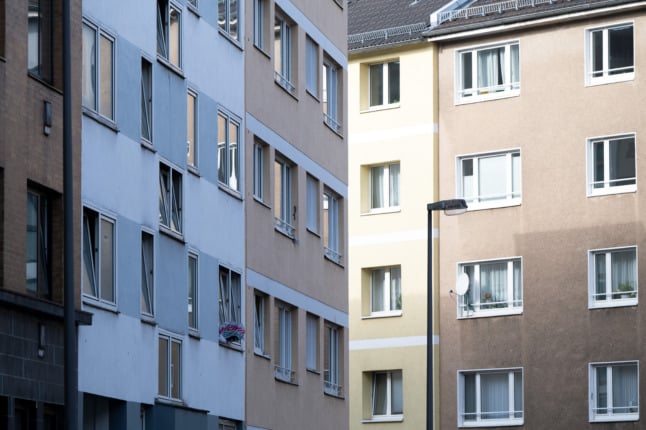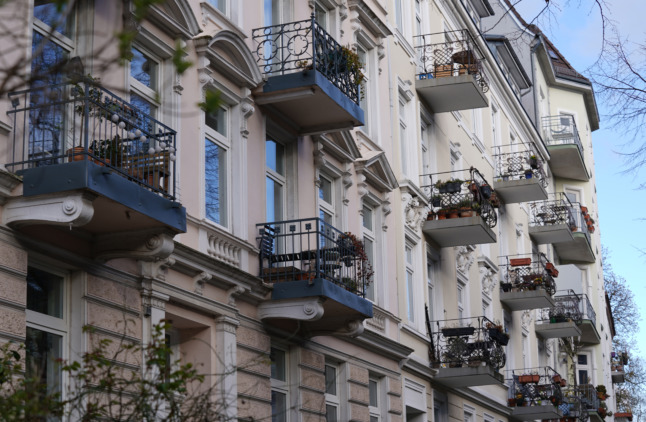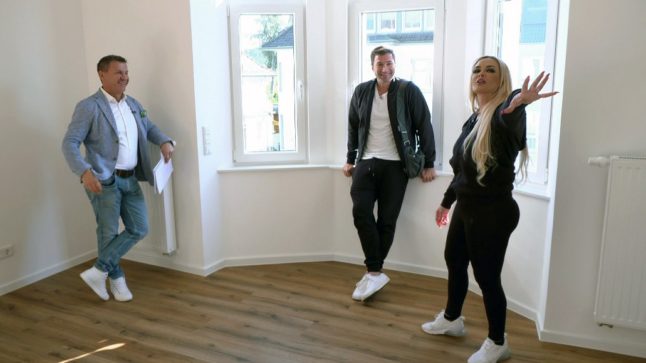While restaurant owners, retailers and cultural organisers have been feeling the burden of the pandemic in Germany, at least one sector of the economy has come through relatively unscathed: residential real estate.
The price dampener feared at the beginning of the pandemic did not materialise last year, in fact, quite the opposite happened: purchase prices increased at an above-average rate.
Since a low point in 2009, homes have more than doubled in cost. A report by the Council of Real Estate Experts (Immobilienweisen) presented earlier this week puts the price increase since then at 146 percent, reported German newspaper FAZ on Tuesday.
READ ALSO: The German cities where property prices are soaring
What did the report find?
In 2021, condominiums rose in price by an average of 14.3 percent nationwide, to €3,140 per square metre, according to the report. Compared to the previous year, the price increase has intensified: from 2020 to 2021, the increase was 11.2 percent.
Prices for homes in eastern Germany have recently risen more strongly than in the west. Large cities in the east – excluding Berlin – recorded an increase of 19.6 percent last year to a price per square metre of €2,621. In western cities prices rose by only 12.5 percent, although the level is also significantly higher at €4,096.
READ ALSO: Why Frankfurt could have the biggest housing bubble in the world
What about rents?
Rents also rose, but not at the same rate as real estate. According to the real estate experts group, they went up by 3.7 percent to an average of €8.46 per square metre. The authors of the survey observed the strongest increase (4.1 per cent) in asking rents in western German districts to €8.27.
In the so-called ‘A-cities’ – Berlin, Düsseldorf, Frankfurt, Cologne, Hamburg, Munich and Stuttgart – new leases rose by 2.7 per cent to an average of €12.27 per square metre.
Berlin continues to be an outlier, with asking rents rising by 4.7 per cent to €9.70 on average. The absolute front-runner is still Munich, with rents averaging a shocking €16.99 (plus 2.6 percent).
READ ALSO: Why rent prices in major German cities are starting to fall
The number of new-build flats in Germany is rising, but it’s not near the current targets.

After around 306,000 flats completed in 2020, the real estate report estimates the number of new-builds for 2021 to be 315,000.
Germany’s government has pledged to increase the annual number of new builds to 400,000 per year, but experts say that will be difficult to reach.
Housing is a major social problem in Germany, especially in cities.
According to a study from last year, around 4.1 million households in Germany’s big cities have to fork out more than 30 percent of their net income on rent, including utilities and heating.
Among social scientists and real estate experts, a rent burden ratio above 30 percent of household income is considered problematic, especially for households with lower incomes.
Many landlords don’t allow people to rent a flat if they reach this threshold because they doubt that tenants can afford their flats long-term under these circumstances.
The study released in 2021 and funded by the Hans Böckler Foundation, also found that around 2.2 million households in the 77 major German cities have to spend at least 40 percent of their income on rent, and for just under 12 per cent – or almost one million households – more than half of their take-home pay goes on rental costs.
On average, tenant households in large cities pay 29.8 percent of their income for gross ‘warm’ rent (rent including associated costs like electricity and gas).



 Please whitelist us to continue reading.
Please whitelist us to continue reading.
Member comments